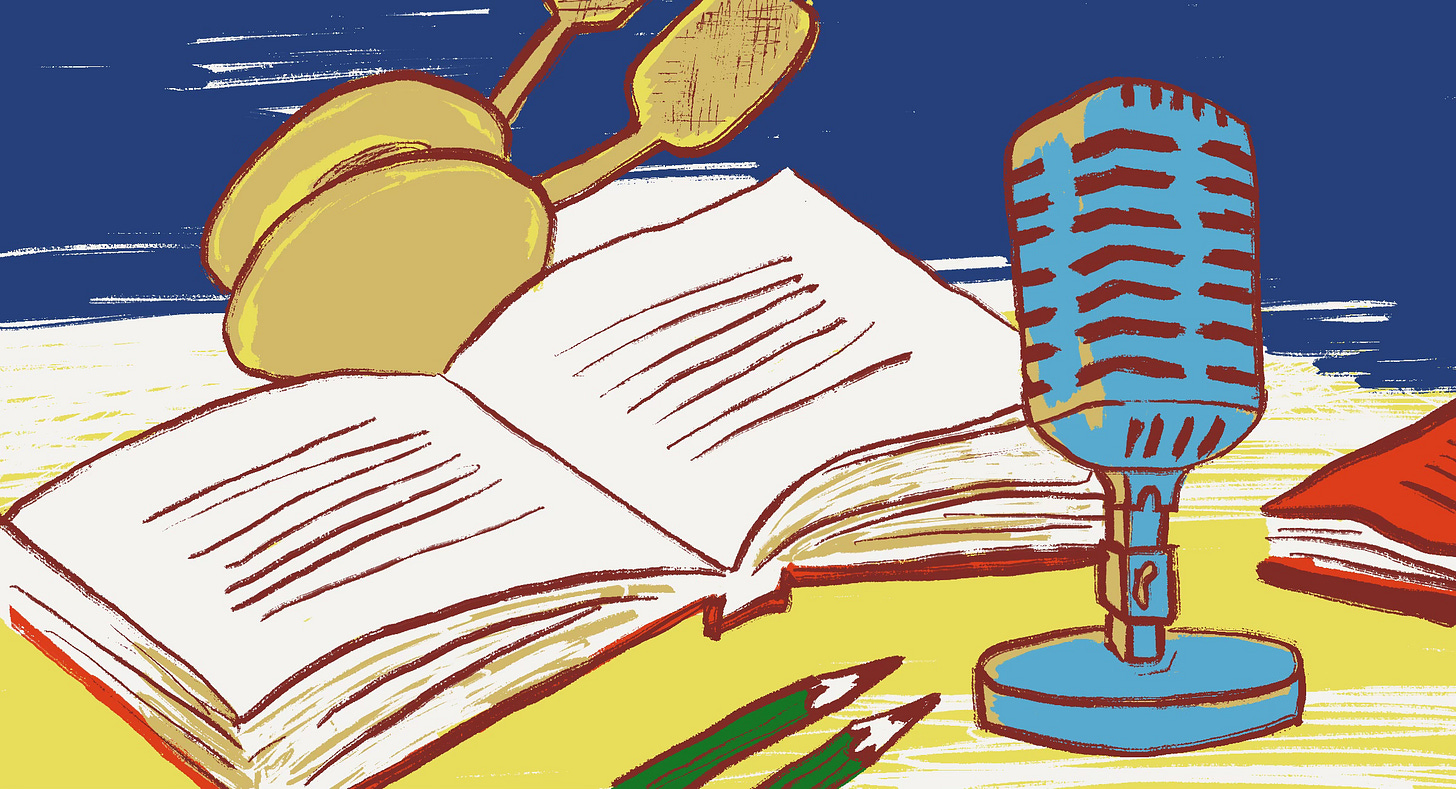7 cultural touchstones for future-ready thinking
A mid-year reset list to sharpen your systems mind and creative edge.
We are now squarely in the thick of the year. So, here I give to you a palate cleanser of sorts: a curated list of seven books, podcasts, and creative practices that have inspired my sense of awareness, and so they may enable you also to lean further into a creative state, strategic focus, and inevitably an expanded vision.
This is your mid-year cultural tune-up. While the list is intentionally sparse, each recommendation invites you to zoom out, question assumptions (the bold and frivolous), and rethink how individual actions ripple across larger ecosystems.
On humanitarian design
Works to help you reimagine social connectedness, philanthropy, social impact and strategy.
(Podcast) Dr Zach Bush MD interviewed by To Be Magnetic’s Lacy Phillips
What made this podcast episode stand out, and why I’ve relistened to it every year or so since its recording in 2021, is one moment of discussion at the 50:00 – 57:30 mark. Physician and thought leader on global human health, food systems, and the gut microbiome, Zach Bush MD, discusses at this timestamp our human connectedness and the importance of community, likening it to how he in his medical research and practice witnessed cancer cells manifesting in the body. That “isolation is the meta-disease”. This interview explores ecosystems in human genomics, religion, medicine, multi-generational patterning, and how the micro is a manifestation of what we see in our human collective at large.(Book) The Soul Of Money – Lynne Twist
A powerful reframe of money not as a transaction, but as a relationship that reveals your values. This book really reframed philanthropy for me, raising the notion of good philanthropic practices should provide an equal energetic exchange between parties for it to be effective and long lasting. An especially good read for social entrepreneurs or otherwise purpose driven.(Standup comedy) Roy Wood Jr - Lonely Flowers
On human connectedness, Roy Wood Jr explores community from much lighter, much more fun lens. The trailer is linked here but you can watch it on Disney Plus.
On designing human systems
Exploring how design shapes identity, belonging, infrastructure, and lived experience at every scale.
(Book) Leading Change – John Kotter
Initially shared with me as an MBA student, this book helped me understand change as a process. A really good read to reframe emotional resistance as part of the natural rhythms of change, rather than problematic. This becomes especially insightful when you parallel this framework – about organisational change and transformation – and see how it mirrors Elisabeth Kübler-Ross’ famous Five Stages Of Grief. Which is to say, any change we experience in the professional world elicits the same grieving process.
On finance as creative capital
Ways to think about money, values, and wealth, through the lens of creativity, people, and generative design. A more integrated approach to capital.
(Book) The Almanack of Naval Ravikant (or the “Navalmanack”)
(Podcast alternative) How To Get Rich - Naval
Reframes wealth as a byproduct of wisdom and self-knowledge, and then goes into a very tangible breakdown of the skills and philosophies that cultivate wealth. The PDF book is free (linked above), or if you prefer listening, this YouTube compilation sums up much of the same concepts.(Book) Valuation – McKinsey and Company
This is a tome, yes, but it lays bare the economic assumptions still steering much of modern business. If you’re building a future-facing business, this is useful to understand the limitations of legacy valuation models. That said, it is 800 pages of business and finance jargon, so feel free to chat with your favourite AI for the core ideas.
On creativity as strategy
Where creativity is a discipline, a habit, and a strategic lever for innovation, transformation, and competitive advantage.
(Practical prompt) Pick up (any) creative practice regularly.
Make your own bread, go to dance classes instead of the gym sometimes, play piano, quiet your mind with painting. Choose whatever resonates with you and stay with it for at least a month. There is ample research on why regular creative practices are important for your overall productivity, ability to innovate, and most importantly, your happiness. You will be surprised to see how these moments of creative joy help you show up better in the rest of your life. For when innovation feels blocked, return to play.
If this piece spoke to you, hit reply and share your views. I read every email reply and comment, and appreciate your feedback.



